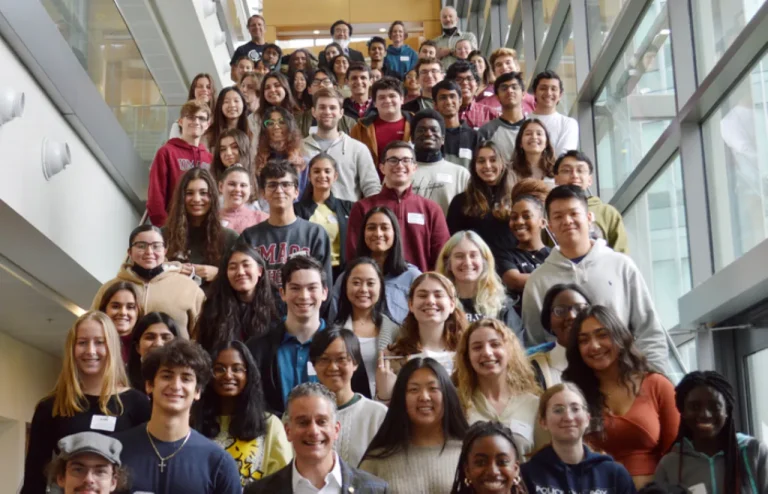Public Policy Vs. Political Science: Understanding The Key Differences
Public policy and political science are two fields that are often conflated, but there are distinct differences between them. In this comprehensive guide, we’ll break down the nuances and help you understand what each field entails.
If you’re short on time, here’s a quick answer to your question: While public policy and political science intersect, public policy focuses on the analysis and implementation of government policies, whereas political science studies political systems, behavior, and theory.
We’ll start by providing an overview of public policy and the typical responsibilities of policy analysts. Next, we’ll examine the field of political science and the various concentrations within it. We’ll compare and contrast the two disciplines in areas like education requirements, career paths, and day-to-day work.
We’ll also provide examples of jobs in both fields. By the end, you’ll have a clear understanding of how public policy and political science differ.
Defining Public Policy
Public policy refers to the decisions, actions, and measures taken by governments, organizations, and institutions to address societal issues and achieve specific goals. It involves the formulation, implementation, and evaluation of policies that impact the lives of individuals and communities.
Public policy is a multidisciplinary field that draws on various disciplines such as political science, economics, sociology, and law to analyze and address complex social problems. By understanding public policy, we can gain insights into how governments and organizations make decisions that shape our society.
Role of the Policy Analyst
Policy analysts play a key role in the public policy process. They are responsible for conducting research, analyzing data, and providing recommendations to policymakers. These professionals gather information from various sources, including government reports, academic studies, and public opinion surveys, to assess the effectiveness of existing policies and propose new ones.
Policy analysts also collaborate with stakeholders, such as government officials, advocacy groups, and community organizations, to ensure that policies are well-informed and address the needs of the population.
Core Responsibilities
The core responsibilities of policy analysts include:
- Conducting research and data analysis to identify policy issues and trends
- Evaluating the impact of existing policies and programs
- Developing policy proposals and recommendations
- Assessing the feasibility and cost-effectiveness of policy options
- Collaborating with stakeholders to gather input and build consensus
- Presenting findings and recommendations to policymakers
- Monitoring and evaluating the implementation of policies
Required Knowledge and Skills
Policy analysts need a strong foundation in research methods, data analysis, and critical thinking. They should have a deep understanding of political, economic, and social systems to navigate complex policy landscapes.
In addition, policy analysts should possess excellent communication and presentation skills to effectively convey their findings and recommendations to policymakers and other stakeholders. Proficiency in quantitative and qualitative research methods, as well as expertise in relevant policy areas, is also crucial for policy analysts to succeed in their roles.
Education
While there is no specific educational pathway to become a policy analyst, most professionals in this field hold advanced degrees in public policy, political science, economics, or related disciplines.
Many universities offer graduate programs in public policy or public administration that provide the necessary knowledge and skills to work in this field. Additionally, gaining practical experience through internships or research assistantships can be beneficial for aspiring policy analysts.
For more information on public policy and the role of policy analysts, you can visit www.brookings.edu or www.policylink.org, where you can find research publications and resources on a wide range of policy issues.
Overview of Political Science
Political science is a discipline that focuses on the study of politics, government systems, and the behavior of individuals and groups within political contexts. It encompasses a wide range of topics, including political theory, international relations, comparative politics, public administration, and public policy.
Subfields and Concentrations
Political science is divided into various subfields and concentrations, allowing scholars to specialize in specific areas of interest. Some common subfields include political theory, which examines the philosophical foundations of politics and the nature of government; comparative politics, which compares different political systems and institutions; and international relations, which focuses on the interactions between nations and global issues.
Research and Analysis
Political scientists conduct research and analysis to better understand political phenomena. They often use both qualitative and quantitative methods to gather data and analyze political trends and behaviors.
Qualitative methods include interviews, case studies, and textual analysis, while quantitative methods involve statistical analysis and modeling.
Political Theory Foundation
Political science is grounded in political theory, which provides the intellectual framework for understanding the nature of politics and government. Political theorists explore questions related to power, justice, equality, and rights, and their work informs the study of politics and policy-making.
Quantitative Methods
Quantitative methods play a crucial role in political science research. Political scientists use statistical analysis to examine patterns and relationships within political data. They may analyze survey data to understand public opinion, election results to study voting behavior, or economic indicators to assess the impact of policies.
Careers in Political Science
A degree in political science can lead to a variety of career paths. Many political science graduates pursue careers in public service, working for government agencies, non-profit organizations, or international institutions. Others enter fields such as law, journalism, consulting, or academia.
The analytical and critical thinking skills developed in political science programs are highly valued in a wide range of professions.
For more information on political science and its subfields, you can visit the American Political Science Association’s website at https://www.apsanet.org/.
Comparing the Two Fields
Public Policy Focuses on Analysis and Solutions
Public policy is a field that focuses on analyzing and finding solutions to societal issues. It involves studying the formulation, implementation, and evaluation of policies that affect the public. Public policy professionals use research and data analysis to understand problems and develop effective solutions.
They work closely with government agencies, non-profit organizations, and other stakeholders to address issues such as healthcare, education, and environmental sustainability. Public policy is rooted in evidence-based decision-making and aims to improve the well-being of society as a whole.
Political Science Studies Political Behavior and Systems
On the other hand, political science is the study of political behavior, systems, and ideologies. It delves into the theories and concepts behind political processes, institutions, and power dynamics. Political scientists analyze how political decisions are made, how governments function, and how individuals and groups participate in the political system.
They study topics such as electoral systems, political parties, and international relations. Political science provides a deeper understanding of the mechanisms that shape political processes and informs policymakers and citizens about the complexities of governance.
Public Policy Requires a More Narrow Skillset
Public policy professionals typically need a more specific skillset compared to those in political science. They focus on skills such as policy analysis, program evaluation, and implementation. Public policy experts need to be adept at conducting research, using data analysis tools, and communicating their findings effectively.
They also need to have a strong understanding of the legal and ethical implications of policy decisions. Public policy professionals often work within government agencies or non-profit organizations where they can directly influence policy outcomes.
Political Science is Multidisciplinary
Political science, on the other hand, is a multidisciplinary field that draws from various social sciences such as sociology, economics, and psychology. Political scientists employ a wide range of research methods, including quantitative analysis, qualitative research, and case studies.
They study political behavior from different angles, considering factors such as cultural norms, economic conditions, and historical contexts. Political science provides a comprehensive understanding of the political landscape and helps us make sense of complex political phenomena.
Public Policy Leads to Government and Nonprofit Careers
Individuals with a background in public policy often pursue careers in government agencies and non-profit organizations. They may work as policy analysts, program managers, or advocates for specific social issues.
Public policy professionals play a crucial role in shaping public programs, designing policies, and advocating for social justice. Their work directly impacts the lives of individuals and communities, making a positive difference in society.
Political Science Careers are More Varied
Career paths for political science graduates are diverse and extend beyond government and non-profit sectors. Political science provides a strong foundation for careers in law, journalism, international relations, and public administration.
Political scientists can become lawyers, diplomats, political journalists, or work in think tanks and research institutions. The analytical and critical thinking skills gained in political science are highly transferable and valuable in a wide range of professions.
Conclusion
While public policy and political science degrees provide foundational knowledge that can inform careers in law, government, and public service, there are clear distinctions between the two disciplines.
Public policy focuses on harnessing political science research to analyze and solve real-world problems through policy implementation. Political science takes a broader academic approach to studying political theories, systems, and behaviors.
Understanding these key differences allows students to choose the degree path best suited to their interests and career aspirations.







